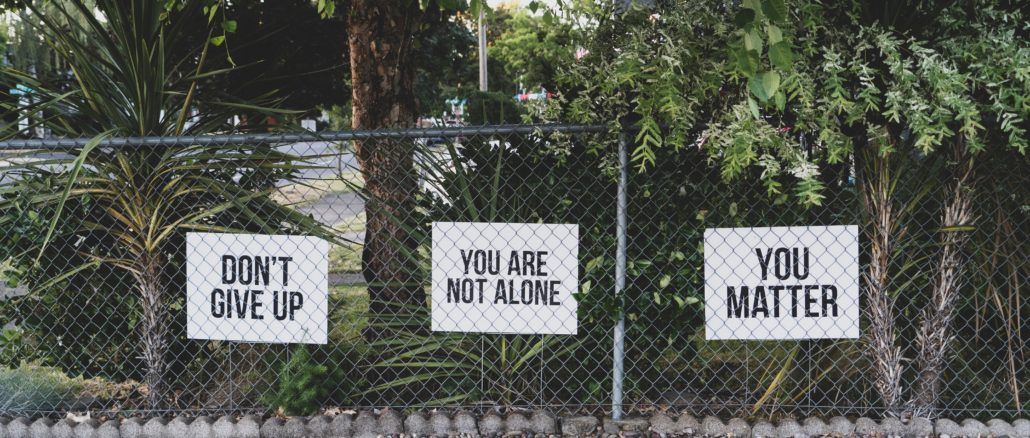
Stress is an inevitable part of being human. We all experience stress and adversity, even in normal times (remember those!), from work to family commitments to health. However, since the outbreak of COVID-19, we have been experiencing a kind of existential stress and anxiety, and a relentless test of our resilience on a scale we never have before.
Early research shows that there is a marked increase in severe psychological distress largely in young Australians aged 18 to 34 years as a result of the pandemic, made worse by the fact that many of our usual coping mechanisms such as exercise classes or spending time with friends were off the menu for some time. We need strategies to help reignite our resilience at home, in the workplace and in everyday life.
What is ‘resilience’ and can we improve it?
Resilience is defined as our ability to ‘bounce back’ from, or withstand, adversity. There are four different types of resilience including: mental, emotional, physical, and community resilience, which refers to the ability of groups to recover from challenging situations like natural disaster or economic recession. We all have differing levels of resilience, which can vary over our lifetime and in unique life circumstances.
Research into what promotes resilience shows that there are certain ‘protective resources’, rather than an absence of risk factors, that determine a person’s capacity to navigate stressors. In other words, boosting resilience is not about removing or getting rid of stress, but it’s about cultivating our ability to respond to those stressors in a healthy and sustainable way. By balancing our moments of stress with moments of recovery, we are able to increase our ability to bounce back from hardship; our resilience can be built, boosted and tapped into. So, how do we do that?
Four ways to boost your mental resilience
As we navigate life’s everyday stresses, let’s walk through some techniques to help lessen the toll of prolonged anxiety to help boost our resilience in the days and months to come.
Understand your innate tendencies
One of the keys to boosting our resilience is not only understanding what stresses us most but being conscious of how we respond to that stress. When we’re conscious about our stress response, we can start shifting it and developing coping strategies to manage stressful situations as needed, allowing us to bounce back quicker next time.
Create a window of space for reflection and celebration
We all develop habits and routines over time, with many new ones recently
developed as we have been working from home. But have they all been beneficial to our health and wellbeing? It is important to carve out a pocket of time to reflect and assess what is working for us and get curious about our reactions to certain
situations. Ask yourself: ‘Is this working for me? Why did I respond that way to a certain situation? What can I do to learn from this?’.
Build in moments of micro-recovery throughout the day
This is probably my favourite way to manage daily stress and anxiety. Create a list of simple, practical techniques that can act as a ‘circuit breaker’ for your mind and body throughout the day. These ‘micro-recovery practices’ are about activating the vagus nerve – the main nerve in charge of the parasympathetic system (your ‘rest and digest’ system) that allows your body to enter into a state of recovery. These small, simple practices break the cycle of long exposure to cortisol and signal to your body that you are safe.
Know your strengths and understand what you can control
When we are experiencing moments of stress, it is important to identify our key strengths, talents and the little things that help us feel capable and in control. For example, small lifestyle changes such as ensuring we get a good night’s sleep, eating healthy food and regular exercise are all activities we can do to take control of our health and boost our mental resilience on a daily basis. Similarly, over time we will begin to learn which micro-recovery techniques work best for us and can implement them as soon as we begin to feel stressed to help turn off our stress response.
A few minutes of meditation. A moment of reflection over a cup of tea. FaceTime with a friend. A mini dance break. A walk outside without your phone. These are all great ways to boost our resilience because they create that all important sense of calm that switches us from a state of stress to a state of recovery, increasing our ability to deal with what comes our way next.
Everyone will find different things that help soothe and relax them when coping with stress. While you may feel more resilient one day, the next you may feel like you’re back to square one. This is completely natural. Just remember to be kind to yourself and give yourself the time and space you need to find techniques that work for you and build your mental resilience on a daily basis.
About Dr. Jaime Lee
Dr. Jaime Lee is a medical doctor, AIA Vitality Ambassador and performance and health expert. As the founder of Health Quotient, Jaime advises global companies on how to sustain high performance in an integrated and healthy way. By balancing the science and art of recovery, she works with leaders on unlocking the mindsets and beliefs around health to transform the relationship we have with ourselves, and each other. Supported by science, cultivated through compassion, Health Quotient’s mission is to co-create healthier and kinder workplaces to renew society.
SheSociety is a site for the women of Australia to share our stories, our experiences, shared learnings and opportunities to connect.

Leave a Reply